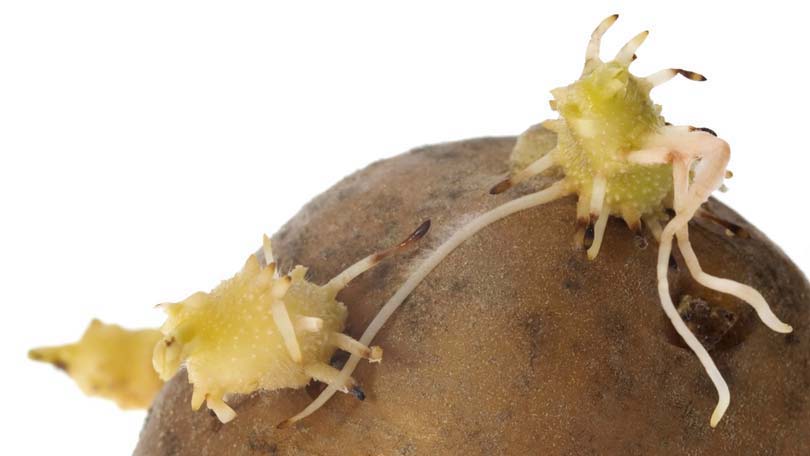
“When I think of potatoes I think of the only two kinds, potatoes and sweet potatoes, right?” Wrong, way wrong! There are actually a great number of different varieties of potatoes and also sweet potatoes aren’t even really potatoes but rather like a distant cousin of the potato who shares the same name. Potatoes, like apples, actually come in many different varieties and just like apples, each variety is better for certain things. With each variety of potato having their own distinct names, colours, taste, best suited purpose and texture.
All in all there are over 150 different varieties of potatoes. They have names like AC Blue Pride, Fabula, Viking, Yukon Gold, and Russet (Idaho potatoes are this variety). When potatoes were first cultivated by South American Indians they grew upwards of 250 different forms of this ground plant. Even more varieties than we see in today’s market, greenhouses, amateur botanist’s gardens, and scientific research gardens. Although there are so many different types of potatoes to choose from only a select number of them are the forms that are grown, sold, and consumed in mass proportions.
The main varieties of potato that you would find at your local grocery store or market, or being prepared and cooked to perfection at your favourite restaurant are the ones that have a real hold on the market for sales/consumption of this vegetable product. There are actually 6 main varieties of potatoes which make up the entire commercial market for this popular plant crop. A lot of varieties are not considered marketable as they are either prone to disease or they simply to do hold up well to being shipped.
In North America the potato can be separated into four main basic categories: 1) Russet Potatoes, 2) Round White, 3) Round Red, and 4) Long White.
1) Russet potatoes, which are also known as “baking potatoes”, “old potatoes”, and “Idaho” potatoes (because the state is a leader in their production), are elliptical in shape with a brown, rough skin and the presence of numerous eyes. Russet potatoes also have a white flesh which is somewhat dry and “mealy” after being cooked. The low moisture and high starch content of russet potatoes make them an excellent choice for creating baked, mashed, and fried potatoes. Some well-known russet varieties include Russet Burbank and Russet Arcadia.
2) Round White potatoes, are medium sized potatoes, also known almost as commonly as simply “boiling potatoes”. Red whites have a freckled brown skin and a waxy flesh that contains less starch and more moisture than both the long white and russet forms of spud. These qualities make them the best suited potato for boiling, hence the name “boiling potatoes”.
3) Round Red potatoes, are the exact same as round white potatoes in almost every way except for the fact that their skin is a reddish-brown covering and the round red is commonly grown in the Northwest of the U.S. and the round whites the Northeast.
4) Long White potatoes, are similar in shape to russet potatoes but they also contain a pale-grey brown skin, that is thin and has barely visible eyes. These Long white potatoes are also sometimes known as “white rose” or “California long whites”, being called after the state where they were first created. Long whites are good for boiling, baking, or being fried. The thumb sized baby long whites which you might sometimes find on your plate or serve yourself are known as fingerling potatoes.
Another very common form of potato is Yellow gold potatoes, which are an example of another type of potatoes called yellow-fleshed.
No matter which variety of potato you usually use; whether you only buy the classic russet potatoes from your local grocer or whether you grow some new strain of potatoes in your home garden always remember that the potato is not some one hit wonder but rather that there are a lot of different varieties out there for you to learn about and try.
